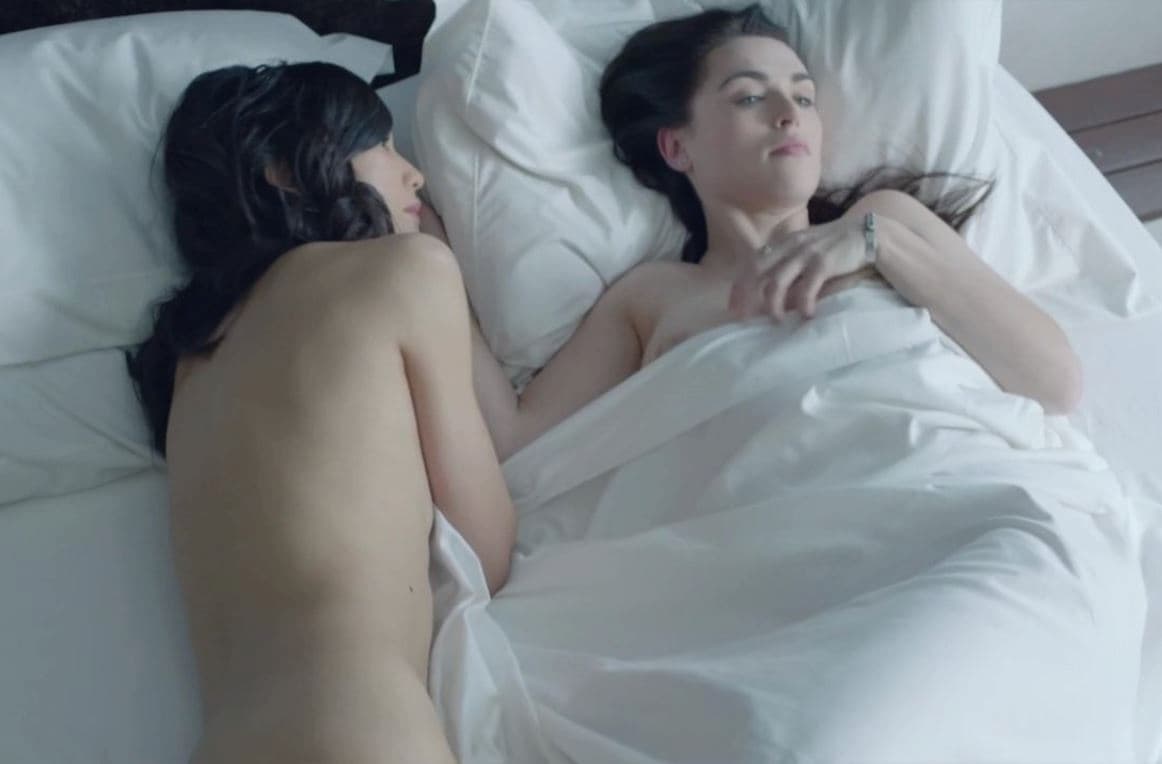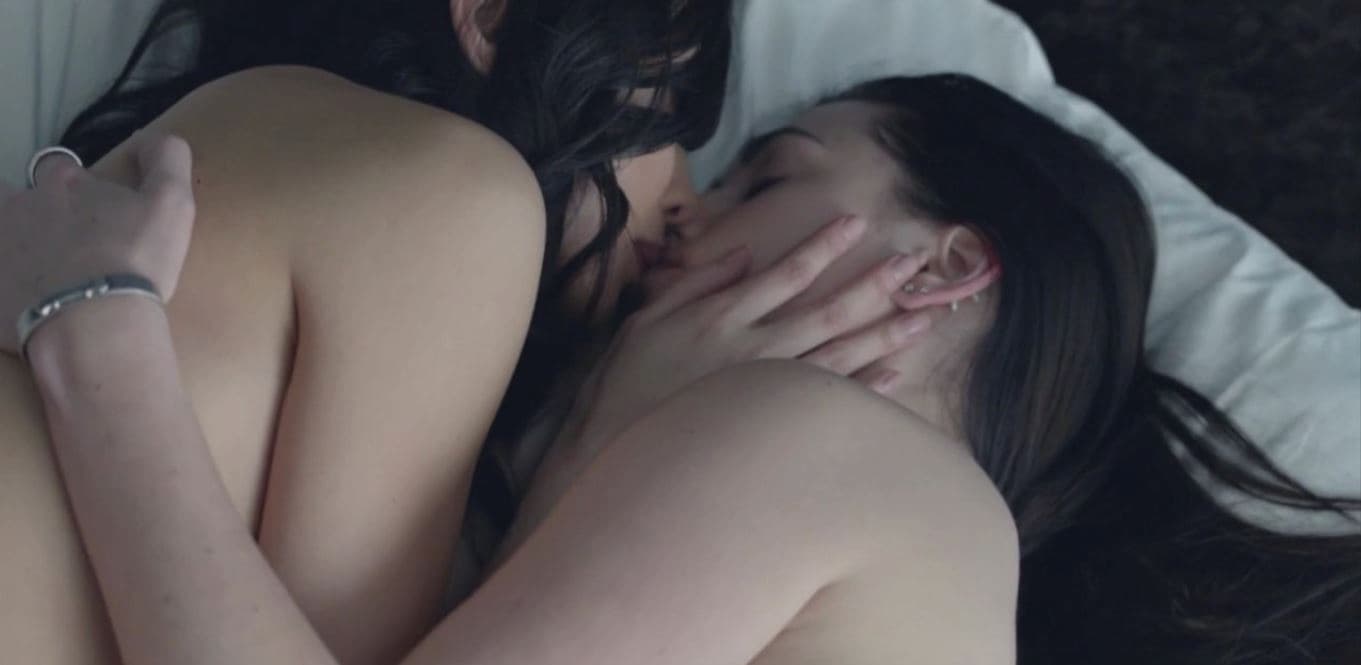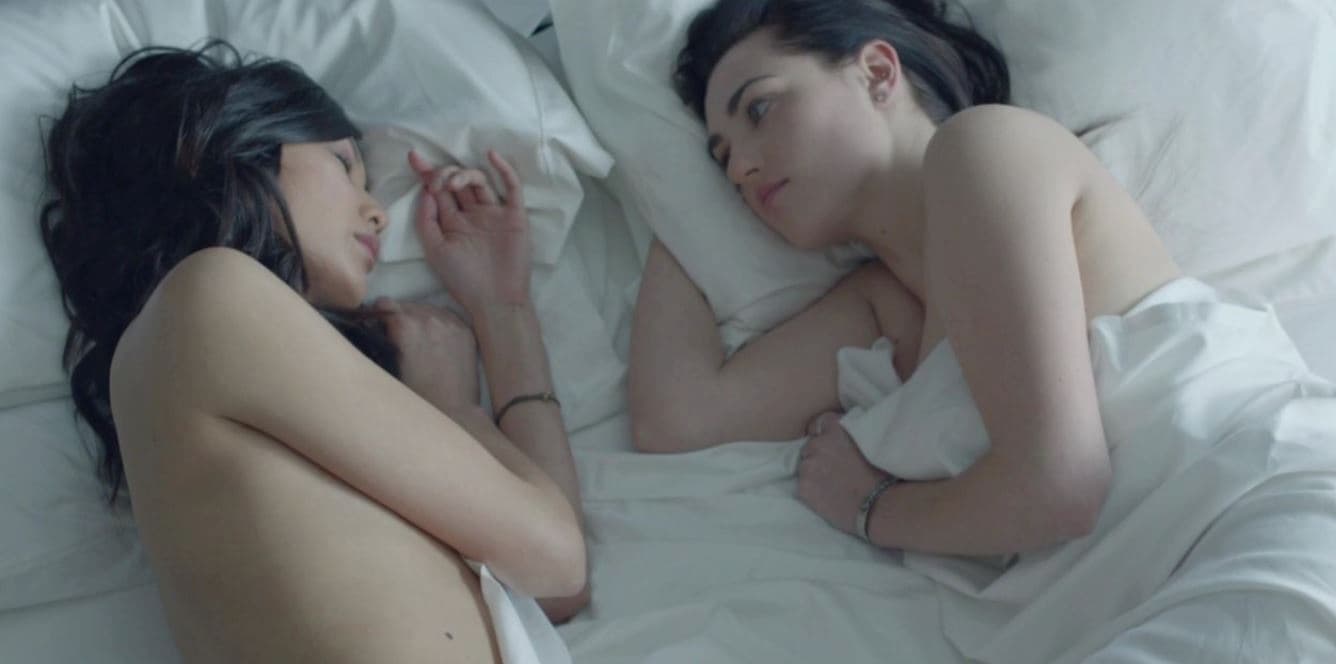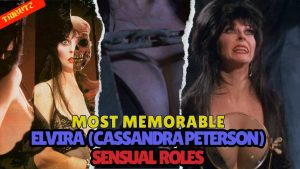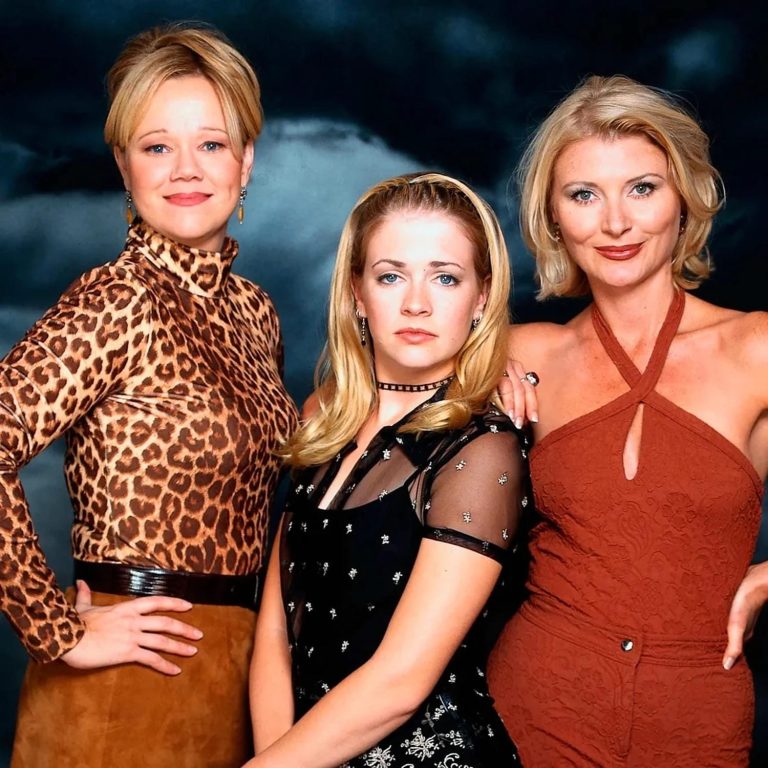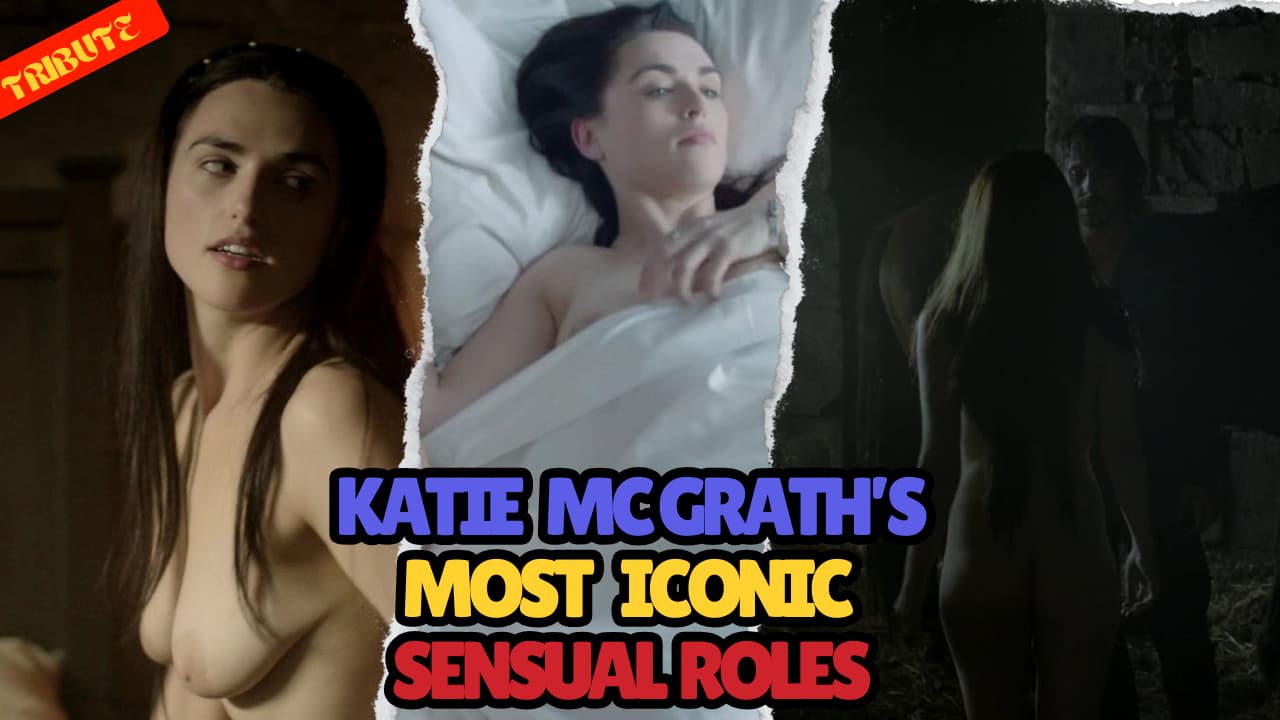
Katie McGrath is an Irish actress born on January 3, 1983, in Ashford, County Wicklow, Ireland. She initially planned a career in fashion journalism and even worked as a wardrobe assistant before pursuing acting. McGrath gained significant recognition with her breakthrough role as Morgana Pendragon in the BBC One fantasy-adventure series “Merlin” (2008–2012). Her portrayal of Morgana, a complex character evolving from innocence to power, showcased her strong acting skills and brought her widespread acclaim.
McGrath has since built a diverse career in both film and television, known for roles including Lucy Westenra in the British-American series “Dracula” (2013–2014), Oriane Congost in the TV miniseries “Labyrinth,” and Lena Luthor on the superhero series “Supergirl” (2016–2021). She has also appeared in projects like “The Tudors,” where she played Bess, and “Dates,” demonstrating her ability to embody nuanced and often intense characters spanning genres from historical drama to fantasy and contemporary stories.
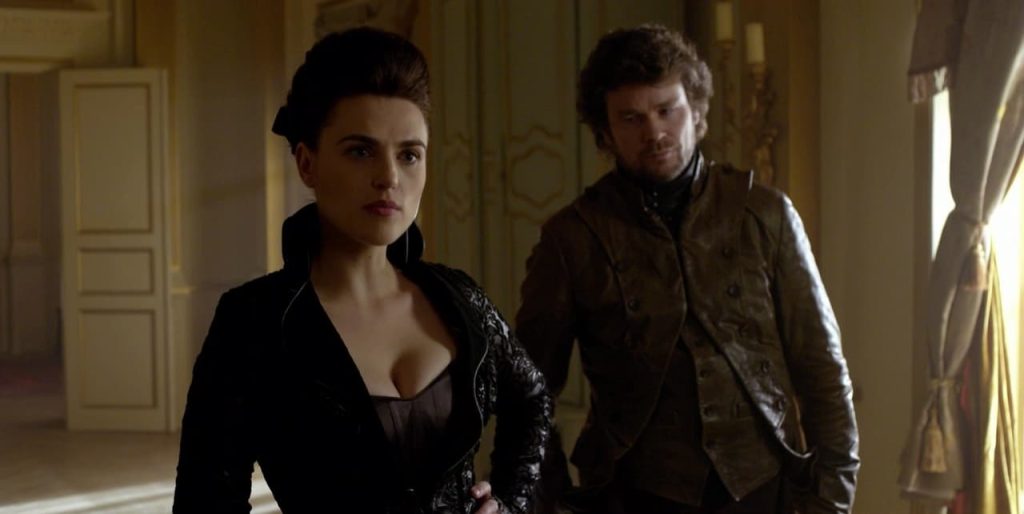
Her work is notable not only for its range but for her capacity to imbue characters with emotional depth, particularly in scenes involving intimacy or complex interpersonal dynamics, lending artistic and narrative weight to her performances. Katie McGrath’s career continues to evolve with roles in series like “The Continental” and “The Ex-Wife,” affirming her status as a versatile and compelling actress known for her distinctive presence and craft.
Contents
Most unforgettable Katie McGrath’s sexy scenes
Katie McGrath’s nude or semi-nude scenes are treated with artistic sensitivity, focusing on mood, character vulnerability, and storytelling rather than explicitness. The direction emphasizes the emotive power and significance of these moments, inviting viewers to engage with the character’s humanity and the thematic undertones conveyed through body language and atmosphere.
“The Tudors” (2007-2010)
In “The Tudors,” Katie McGrath plays Bess, a role within a series celebrated for its raw, primal depiction of power interwoven with sexuality. McGrath’s nude and sensual scenes, though not abundant, are deeply evocative and contribute significantly to the atmosphere of the show. These moments are not gratuitous but serve as a powerful narrative tool to expose the vulnerability, political maneuvering, and intimate entanglements within the Tudor court. The carefully crafted direction frames these scenes with a painterly aesthetic, enhancing the historic and emotional weight. McGrath’s poised and subtle performances in such charged settings communicate a layered complexity — the negotiation between desire, control, and survival. The scenes resonate beyond physical exposure, expressing themes of agency, seduction, and influence in a brutal era.
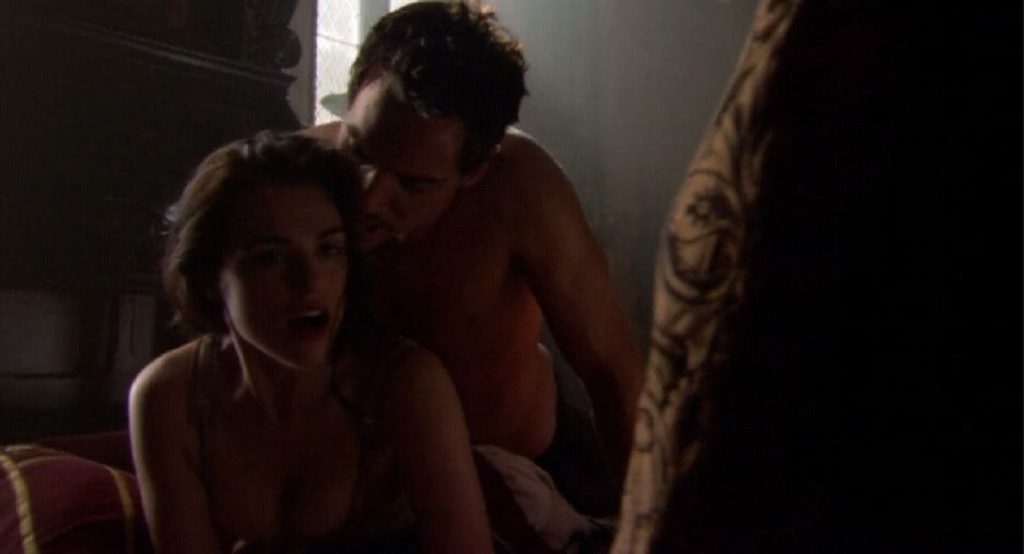
“Merlin” (2008-2012)
Morgana Pendragon, although the show is fundamentally a fantasy series, glimpses of sensuality and suggestive costume choices contribute to the character’s evolution from innocence to a more mature, darkly empowered woman. These elements are part of a larger artistic and narrative framework, employing visual storytelling to underline Morgana’s transformation and agency.
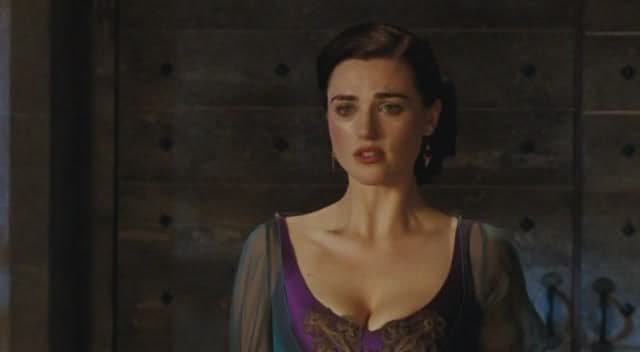
“Labyrinth” (2012)
In the TV miniseries “Labyrinth,” where McGrath portrays Oriane Congost, the sensual elements take on a more enigmatic and provocative tone. The scenes involving intimacy convey not just physicality but a psychological depth that aligns perfectly with the suspenseful, mysterious nature of the series. The direction emphasizes the interplay of shadows and body language, turning eroticism into a narrative language that reveals hidden motives and emotional currents between characters. McGrath’s embodying of sensuality here is an artistic expression that heightens the tension and intrigue, demonstrating her ability to use vulnerability and allure as instruments of storytelling rather than mere spectacle.
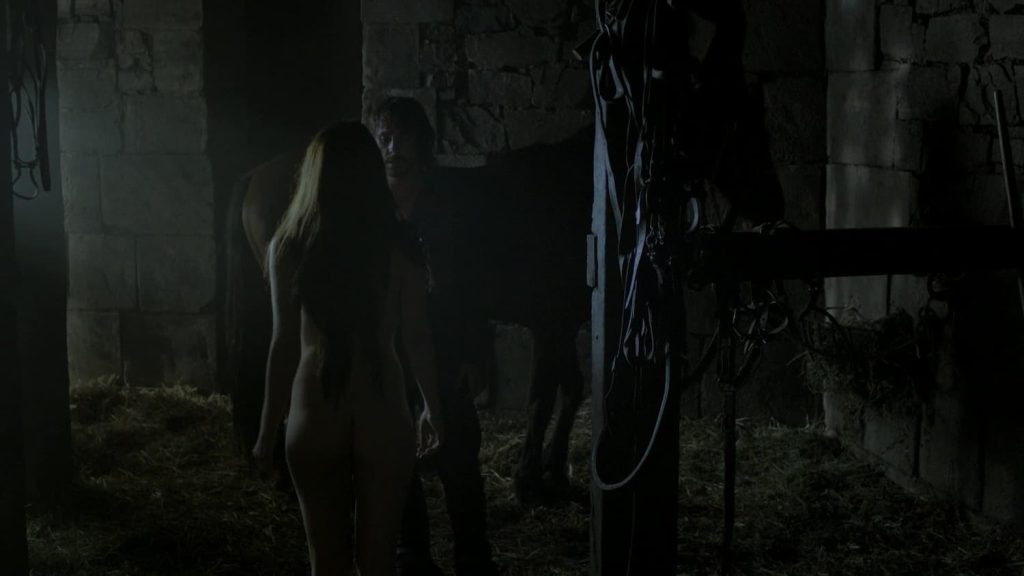
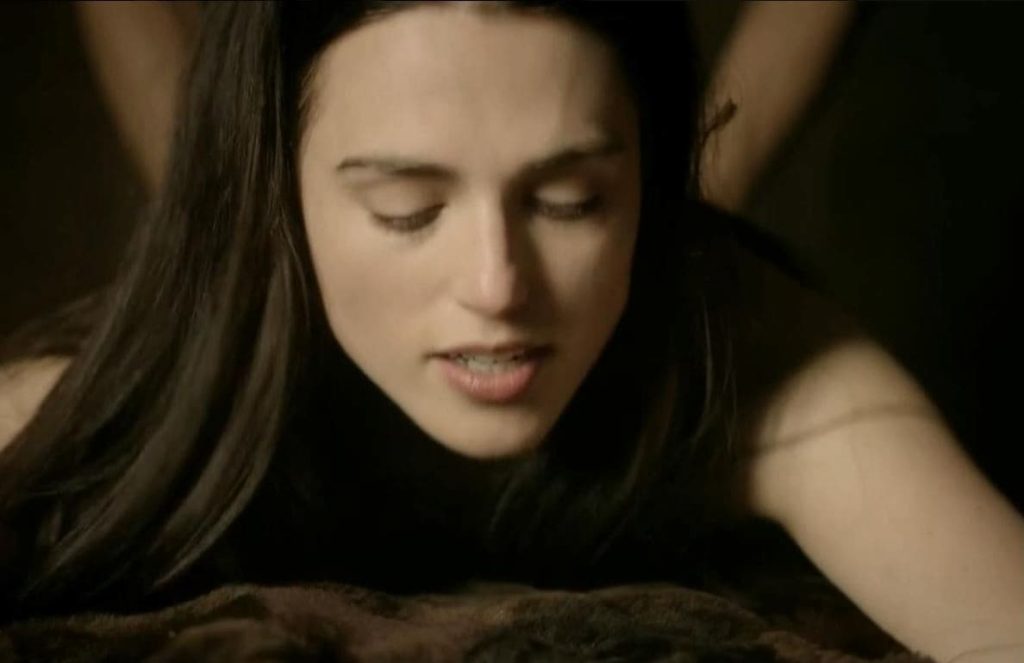
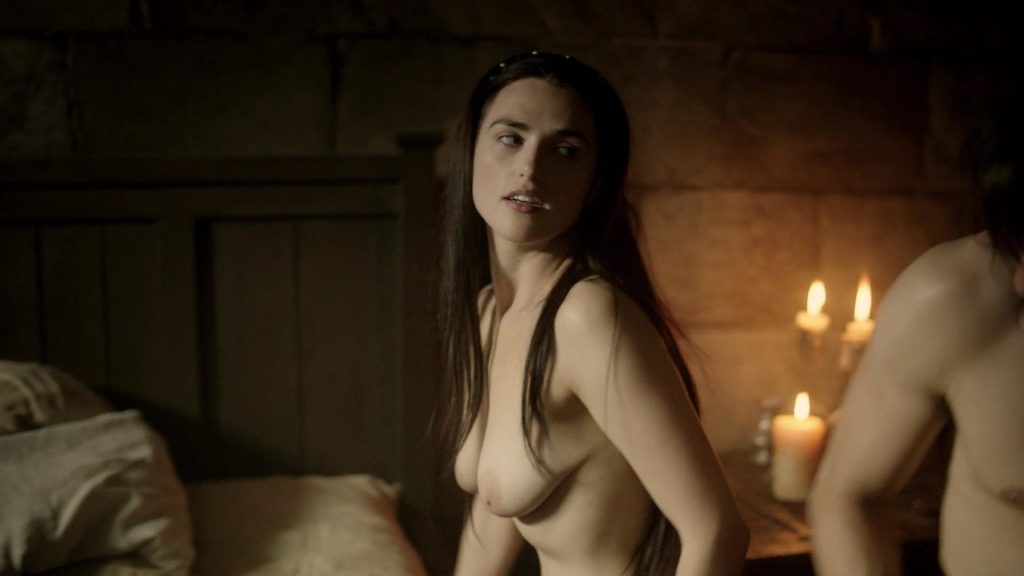
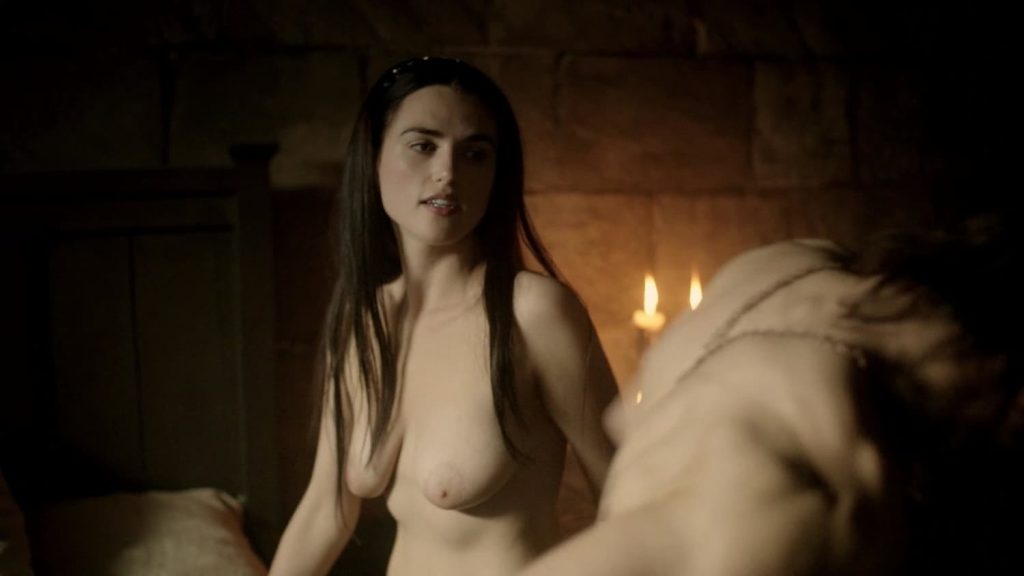
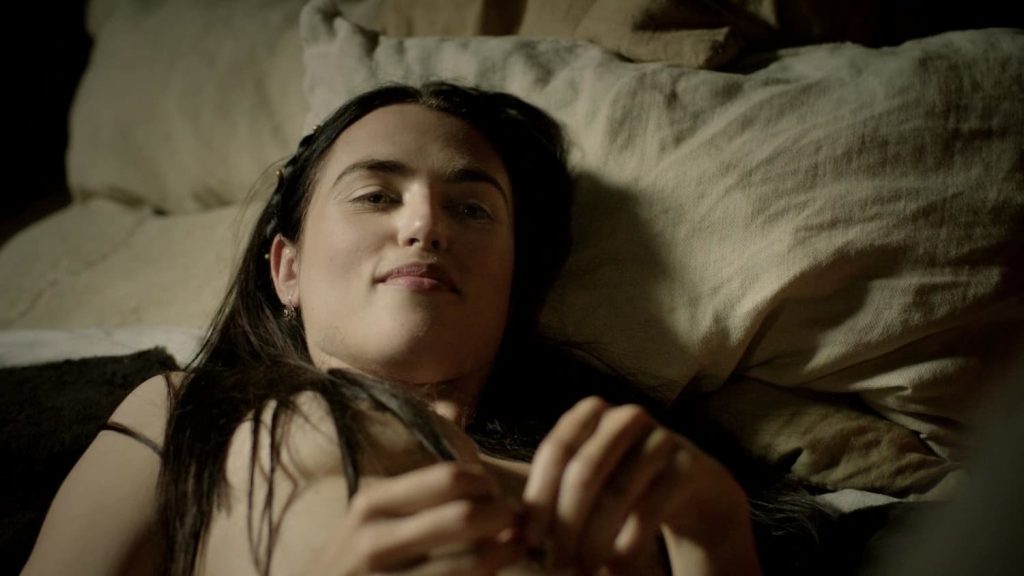
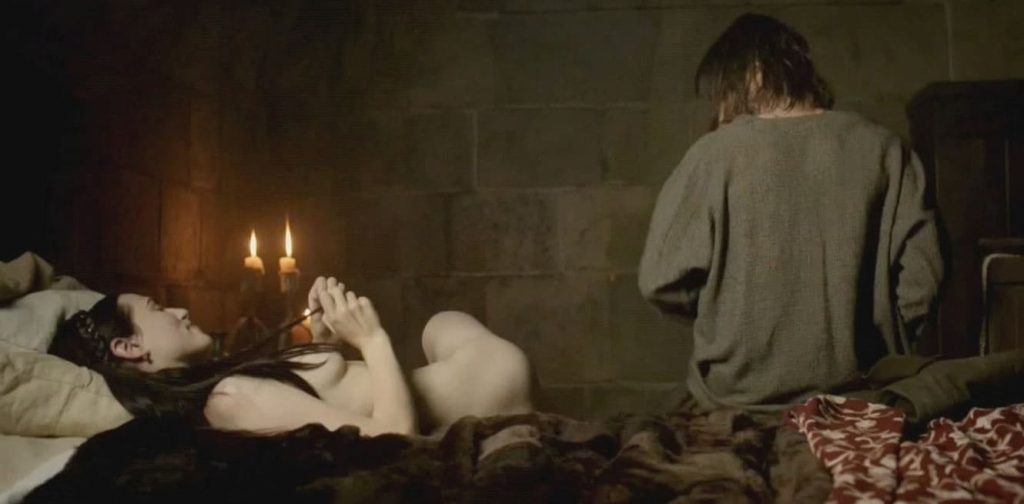
“Dracula” (2013-2014)
McGrath portrayed Lucy Westenra, there are sensual undertones and moments that communicate vulnerability, seduction, and tragedy, integral to the gothic atmosphere and storytelling. These scenes do not merely aim for titillation but rather serve to build a rich psychological portrait of her character, using sensuality as a language to express complex internal states and relational dynamics.
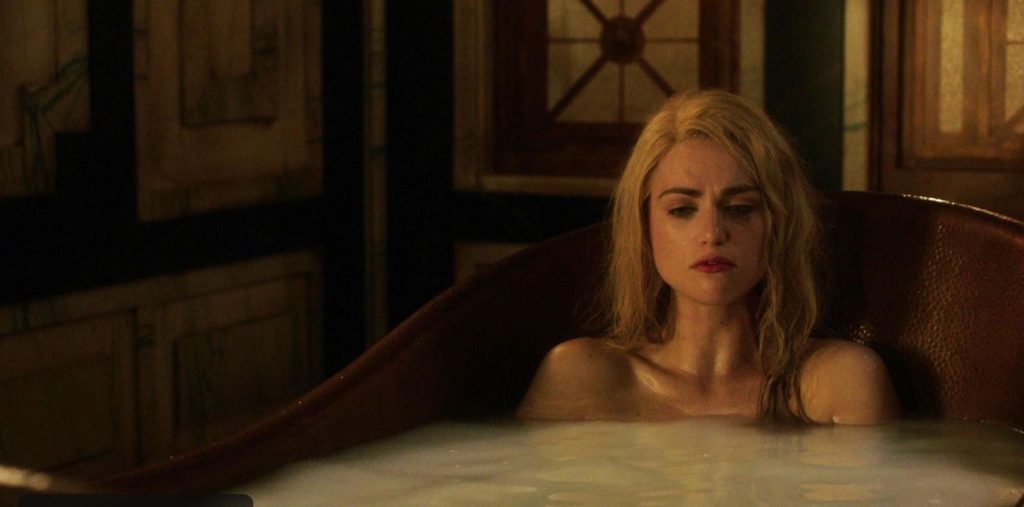
“Dates” (2013)
Katie McGrath’s appearance in the anthology series “Dates,” particularly in the episode featuring a same-sex relationship, uses sensual scenes to explore themes of identity, acceptance, and emotional authenticity. The intimate scenes are presented with sensitivity and realism, avoiding melodrama to focus on the genuine connection and conflict between the characters. The director’s approach is reflective and respectful, aiming to communicate the courage and complexity of coming out and navigating personal relationships. McGrath’s nuanced performance expertly conveys the internal struggle and the liberating power of intimacy, making these scenes impactful and heartfelt.
